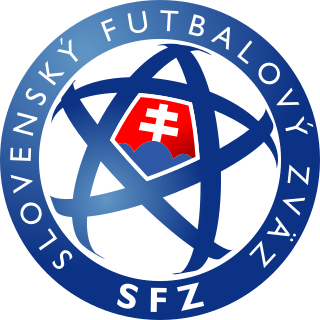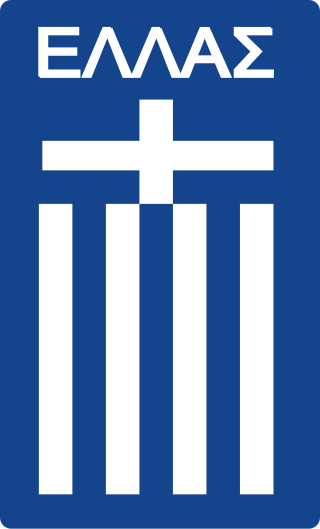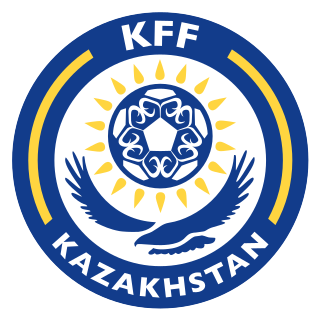External links
- Irakli Zoidze at National-Football-Teams.com
- Irakli Zoidze – FIFA competition record (archived)
| Personal information | |||
|---|---|---|---|
| Full name | Irakli Zoidze | ||
| Date of birth | 21 March 1969 | ||
| Place of birth | Soviet Union | ||
| Height | 1.81 m (5 ft 11 in) | ||
| Position(s) | Goalkeeper | ||
| Senior career* | |||
| Years | Team | Apps | (Gls) |
| 1990–1991 | Mertskhali Ozurgeti | 29 | (0) |
| 1991–1992 | Kutaisi | 33 | (0) |
| 1992–1998 | Dinamo Tbilisi | 117 | (0) |
| 1998–1999 | Maccabi Jaffa | 22 | (0) |
| 1999 | FBK Kaunas | 1 | (0) |
| 2000–2001 | Torpedo Kutaisi | 36 | (0) |
| 2002–2006 | Dinamo Tbilisi | 79 | (0) |
| International career | |||
| 1994–1997, 2001 | Georgia | 19 | (0) |
| *Club domestic league appearances and goals | |||
Irakli Zoidze (born 21 March 1969) is a Georgian footballer.
Zoidze has played for clubs in Georgia, Israel and Lithuania. He often compete with Davit Gvaramadze during his career at Dinamo Tbilisi and Torpedo Kutaisi.
Zoidze played for Georgia since 8 February 1994. He played once at UEFA Euro 1996 qualifying before lost first choice place to Akaki Devadze. He then played the last two matches in the qualifying after Georgia certainly finished 2nd or below in the 8th round, and have to complete with Germany. He is the regular starter at 1998 FIFA World Cup qualification (UEFA), but the last three games was given to Nikoloz Togonidze. He returned to the national team in 2001, played once in friendly and two in 2002 FIFA World Cup qualification (UEFA).

The Azerbaijan national football team is the national football team of Azerbaijan and is controlled by Association of Football Federations of Azerbaijan. It represents Azerbaijan in international football competitions. The majority of Azerbaijan's home matches are held at the national stadium, Baku Olympic Stadium, with friendly matches sometimes hosted at club stadiums.

The Hungary national football team represents Hungary in men's international football and is controlled by the Hungarian Football Federation. The team has made 9 appearances in the FIFA World Cup and 4 appearances in the European Championship, and plays its home matches at the Puskás Aréna, which opened in November 2019.

The Slovakia national football team represents Slovakia in men's international football competition and it is governed by the Slovak Football Association (SFZ), the governing body for football in Slovakia. Slovakia's home stadium from 2019 is the reconstructed Tehelné pole in Bratislava. Slovakia is one of the newest national football teams in the world, having split from the Czechoslovakia national team after the dissolution of the unified state in 1993. Slovakia maintains its own national side that competes in all major tournaments since.

The Greece national football team represents Greece in men's international football matches and is controlled by the Hellenic Football Federation, the governing body for football in Greece. Starting in 2023, Greece play their home matches in Nea Filadelfeia, a suburb of Athens, at the newly built Agia Sophia Stadium. Greece is one of only ten national teams to have been crowned UEFA European Champions.

The Cyprus national football team represents Cyprus in international football and is controlled by the Cyprus Football Association, the governing body for football in Cyprus. Cyprus' home ground is currently the AEK Arena in Larnaca, and the current coach is Temur Ketsbaia.

The Georgia national football team represents the country of Georgia in men's international football matches, and it is controlled by the Georgian Football Federation. The Georgian team's first match took place in 1990, while Georgia was still part of the Soviet Union. The team have attempted to qualify for each major tournament from Euro 1996 onwards, but have not achieved qualification yet, although they came very close to Euro 2020. Home games are played at the Boris Paichadze Dinamo Arena in Tbilisi.

The Ukraine national football team represents Ukraine in men's international football and is governed by the Ukrainian Association of Football, the governing body for football in Ukraine. Ukraine's home ground is the Olimpiyskiy Stadium in Kyiv. The team has been a full member of UEFA and FIFA since 1992.

The Serbia national football team represents Serbia in men's international football competition. It is controlled by the Football Association of Serbia, the governing body for football in Serbia.

The Kazakhstan national football team represents Kazakhstan in men's international football and it is governed by the Kazakhstan Football Federation. They split from the Soviet Union national football team after independence in 1991 and joined the Asian Football Confederation's Central Asian Football Federation. After failing to qualify for the 1998 and 2002 FIFA World Cups, they joined UEFA, but are yet to qualify for a FIFA World Cup or a UEFA European Championship.
Savvas Kofidis is a Greek professional football manager and former player. He is regarded as one of the best football players of his generation in Greece, and is most famous for his successful partnership with Vasilis Hatzipanagis at Iraklis Thessaloniki and his flamboyant haircuts which he has kept to this day. He also appeared 67 times for the Greece national team, scoring once and being a vital part of the team's qualification to the 1994 World Cup in the United States.

The Montenegro national football team has represented Montenegro in international football since 2007. It is controlled by the Football Association of Montenegro, the governing body for football in Montenegro. Montenegro's home ground is Podgorica City Stadium in Podgorica.

Angelos Anastasiadis is a Greek football manager and former international footballer. He previously coached numerous clubs in Greece including PAOK, Panathinaikos, Platanias and PAS Giannina as well as the Greece and Cyprus national teams.
Davit Gvaramadze is a retired Georgian footballer.

The Russia national football team represents the Russian Federation in men's international football. It is controlled by the Russian Football Union, the governing body for football in Russia. Russia's home ground is the Luzhniki Stadium in Moscow and their head coach is Valery Karpin.
The 2022 FIFA World Cup qualification was the qualifying process which decided the 31 teams that would join hosts Qatar, who received an automatic spot, at the 2022 FIFA World Cup.

Jere Uronen is a Finnish professional footballer who plays as a full-back for Ligue 1 club Brest and the Finland national team. He began his senior club career playing for TPS, before signing with Helsingborgs IF at age 17 in 2012.

The Montenegro women's national football team represents Montenegro in international women's football, and it is organised by the Football Association of Montenegro.

The 2026 FIFA World Cup qualification will be the qualifying process which will decide the teams that will join hosts Canada, Mexico and the United States at the 2026 FIFA World Cup.
The European section of the 2022 FIFA World Cup qualification acted as qualifiers for the 2022 FIFA World Cup, to be held in Qatar, for national teams that are members of the Union of European Football Associations (UEFA). A total of 13 slots in the final tournament were available for UEFA teams.

FC Gonio is a Georgian association football club based in Gonio, the southern settlement of Batumi.